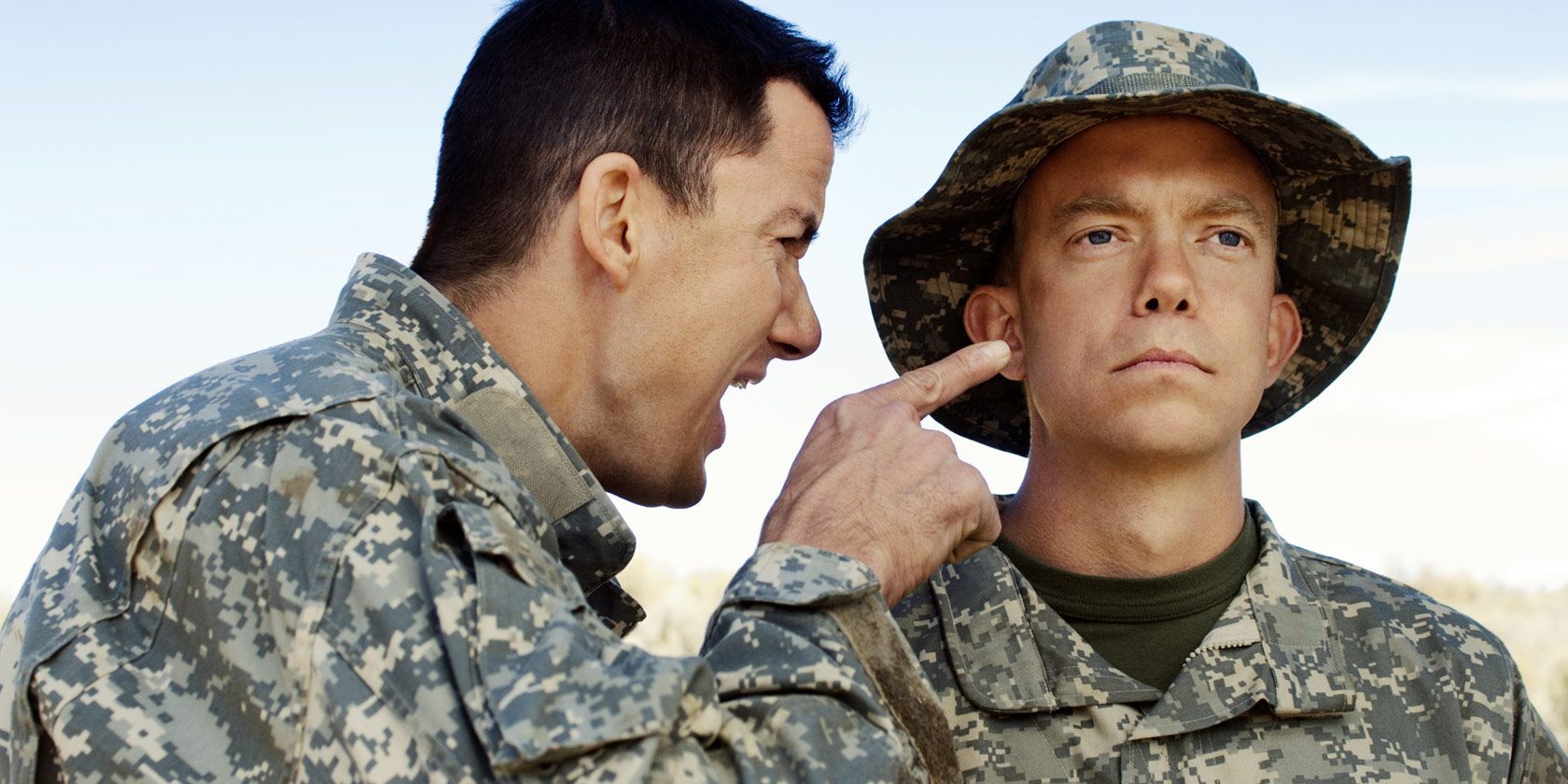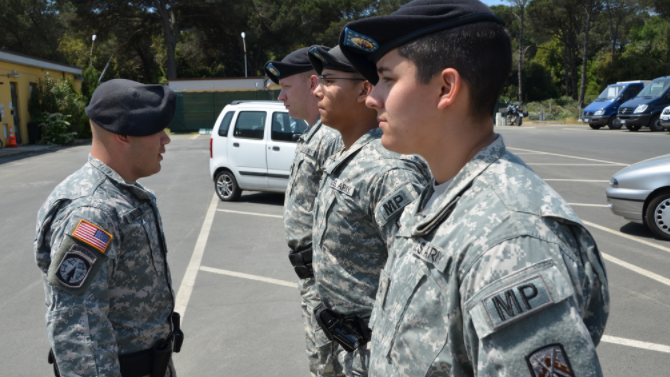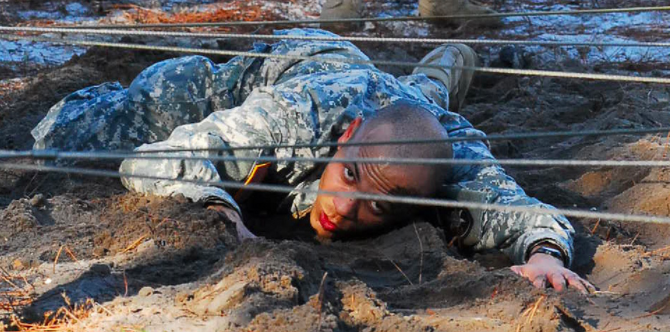Whether or not you agree with the intense training the military employs, they sure know how to get things done.
The physical and mental training employed by the world's military is specifically designed to create formidable warriors and effective leaders. But it's also transferable to non-combat situations, helping to improve the leadership of CEOs and the productivity of employees in any industry.
With that in mind, we read and listened to numerous members of the military to extract a few key lessons that can help improve anyone's productivity.
1. Make Your Bed
Making your bed every morning is the first piece of advice that Admiral William H. McRaven offered the University of Texas during his class of 2014 commencement speech:
[Making your bed] is a simple task. Mundane at best. But every morning, we were required to make our bed to perfection. It seemed a little ridiculous at times... but if you make your bed every morning you will have accomplished the first task of the day. It will give you a small sense of pride, and will encourage you to do another task. And another.
http://www.youtube.com/watch?v=pxBQLFLei70&t=4m43s
Tim Ferriss learned the same lesson from a Sri Lankan monk, but also points out that "this is a common belief among many high achieving military tacticians".
Making your bed isn't just a small catalyst for completing larger tasks. No matter how terrible your day goes, this tiny success helps you to "keep one hand on the steering wheel of life". It's also why "tackle your largest task first" is bad productivity advice. Smaller tasks are far better at developing productive momentum -- and much easier, too.
2. Be More Stoic
Admiral McRaven also explains:
For failing uniform inspection, the student had to run fully clothed into the surf zone. Then, wet from head to toe, roll around on the beach until every part of your body was covered with sand... you stayed in the uniform the rest of the day: cold, wet, and sandy.
The effect was known as sugar cookie.
The purpose of the drill was not to learn how to pass uniform inspection. The instructors were never going to let you have a perfect uniform.
The point is that "sometimes, no matter how well you prepare, or how well you perform, you still end up as a sugar cookie... if you want to change the world, get over being a sugar cookie, and keep moving forward".
The idea to keep moving forward despite discomfort stretches back to the ancient stoics, including Emperor, and military leader, Marcus Aurelius. The primary takeaway is to keep moving through the chaos and stress. To not let failure and discomfort stop you working on what's important. It's just part of the process. Tomorrow will probably be better.
3. Find Your Battle Rhythm
In an interview at The Hudson Union, General McChrystal spoke about the importance of fitting in his daily run first thing in the morning: "You have to do it when you're not competing with other things." Otherwise as soon as he arrived at the office, he found himself buried in busy-work.
Field Marshal William Slim, a commander for the British army in Burma during WWII, agreed with this kind of strict routine. In his memoir he talks about the importance of establishing a "battle rhythm". His own battle rhythm included plenty of time for sleep, reading, and exercise, though it's different for every person. Trial and error is key.
Whatever routine works for you to set yourself up for the day or recover from the previous day's work, fit this into your schedule, and guard it relentlessly. The productivity benefits will far outweigh the small amount of time it takes to maintain your routine.
4. Tackle Small Tasks Right Now
During their training, U.S. Navy soldiers learn that if a task will take five minutes or less, do it now. This is a habit that's carried through all levels of the Naval hierarchy. A small task completed now can prevent a larger task in the future.
Plus, to go back to an earlier point, checking off these small tasks generates the momentum to help you tackle larger tasks later on.
In the immensely popular GTD productivity system, David Allen takes a similar approach. In his book Getting Things Done, he advises that any task that will take two minutes or less should be tackled immediately. It's not worth adding to your to-do-list after all, and really helps you keep on top of the minutiae of every day life.
5. Keep Going
Winston Churchill's famous quote ("If you're going through hell, keep going") sounds like little more than a cliché, but in the military, that mentality is tested to the limit.
Let's go back to Admiral McRaven's commencement speech for a minute. If, during any Navy SEAL training exercise, you didn't meet the required standards, you'd be invited to the Circus:
A circus was two hours of additional calisthenics, designed to wear you down, to break your spirit, to force you to quit.
During the training period everyone went to the Circus. The interesting thing, however, was that those students who were routinely invited to the Circus became stronger and faster:
The pain of the Circus built inner strength and physical resiliency.
Through hardship and self-discipline, the brain is re-wired. This rewiring helps you to push harder even when you feel there's nothing left to give. Soldiers who were invited to the circus already felt they'd given it their all. Somehow, they still managed two more hours of grueling calisthenics.
The lesson here is that no matter how strongly you feel that you have nothing else to give, there's always a little more fuel in the tank. If you're wanting to up your productivity, this is an incredibly important lesson to learn. Rewiring your brain to keep going when everyone else would quit is what helps (as serial entrepreneur Gary Vaynerchuk says) "separate the successful from the unsuccessful".
Increasing Your Productivity
In the military, staying productive rests largely on a tough mindset. A self-discipline that forces you to act even when you don't want to.
Thankfully, it looks like you can learn that mindset.
It's telling that the military's approach to productivity (to turn up and do the work, no matter what), is very similar to that of many artists and writers. While General McRaven tells us to just keep going, Ernest Hemingway urges us to just turn up day in, day out, and bleed at the typewriter.
The consistency of advice between these different industries shows there's something universal that we shouldn't ignore. Something that can be applied to virtually any situation, by anyone.
Which of these pieces of productivity advice do you think you will find most useful?
Image Credits: bikeriderlondon/Shutterstock





